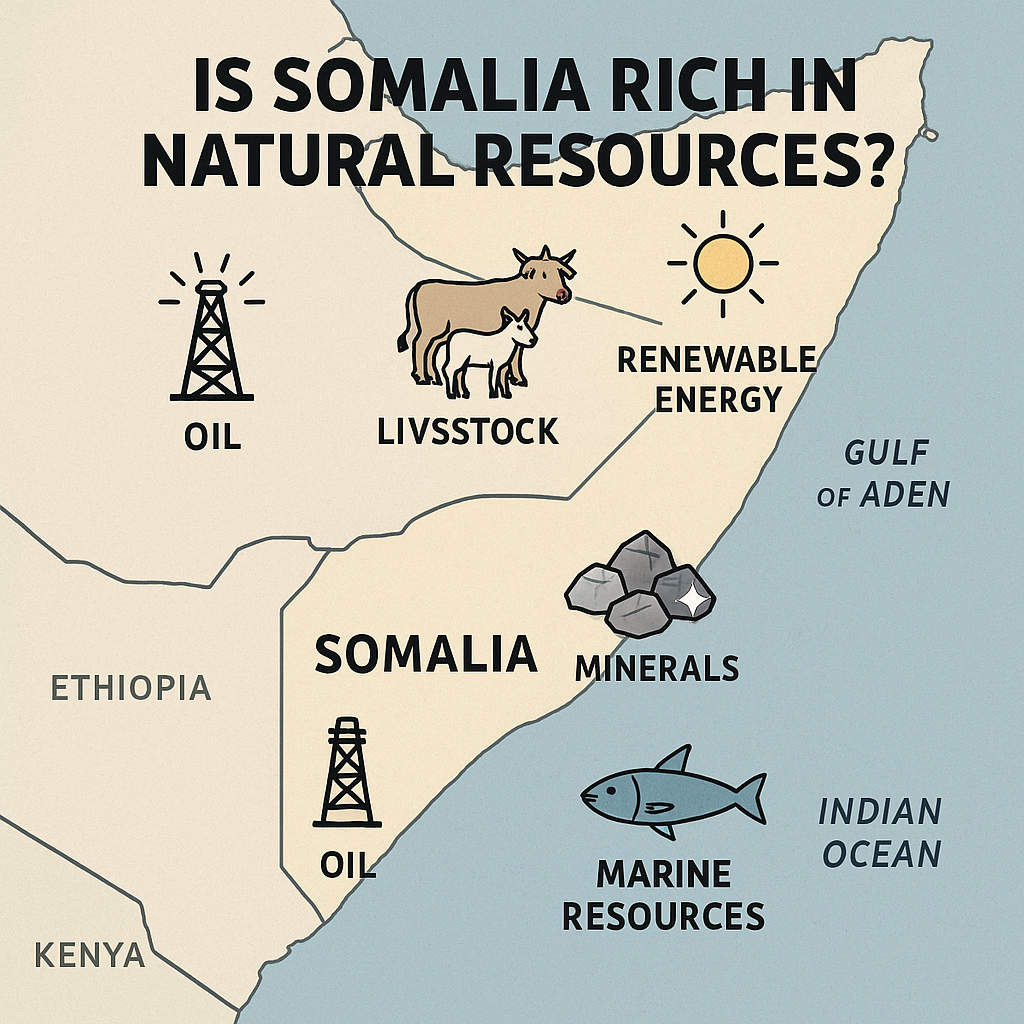Is Somalia Rich in Natural Resources?
Posted 1 month ago by Mohamed Ali in
Somalia is a country rich in natural resources, holding significant potential for economic growth and development.
Somalia, located in the Horn of Africa, is often discussed in the context of its long history of conflict and political instability. However, what many people do not realize is that Somalia is a country rich in natural resources, holding significant potential for economic growth and development
Oil and Gas Reserves
One of Somalia’s most talked-about natural resources is its potential oil and gas reserves. Several geological surveys and studies have suggested that Somalia's offshore basins and inland regions could hold large quantities of untapped petroleum. Companies from around the world have shown interest in exploring Somalia’s oil potential, especially in the southern and offshore areas, such as the Indian Ocean shelf. If properly managed, the oil and gas sector could become a major driver for Somalia’s economy.

Marine Resources
Somalia has the longest coastline on mainland Africa, stretching over 3,300 kilometers along the Indian Ocean and Gulf of Aden. This gives the country access to some of the richest fishing grounds in the region. Tuna, lobster, sardines, and other seafood are abundant in Somali waters. Sustainable development of the fishing industry could create thousands of jobs and provide significant income for the nation.
Agriculture and Livestock
Somalia’s fertile land and favorable climate in certain regions make it suitable for agriculture. The country is famous for its livestock—camels, goats, sheep, and cattle—which have historically been a major part of the Somali economy. Livestock exports to countries like Saudi Arabia and other Gulf nations form a vital part of Somalia's trade income. Additionally, crops such as bananas, sugarcane, sorghum, and maize are grown in different regions.
Minerals
While mineral exploration is still in its early stages, Somalia is believed to have deposits of valuable minerals like uranium, iron ore, tin, gypsum, bauxite, copper, and even potential gold. In some areas, local communities have engaged in small-scale mining. If developed with modern methods and under a stable legal framework, Somalia’s mineral wealth could contribute greatly to national revenues.
Renewable Energy Potential
With its abundant sunshine and strong winds, Somalia also has vast potential for renewable energy. Solar and wind energy could help not only rural electrification but also promote new industries and improve the quality of life for millions of Somalis.
Challenges and Opportunities
Despite this natural wealth, Somalia faces significant challenges. Political instability, lack of infrastructure, insecurity, and weak institutions have hindered the full exploitation of its resources. However, with ongoing efforts towards peace, governance reforms, and investment in education and infrastructure, Somalia’s natural resources could play a crucial role in transforming its future.
Conclusion
In conclusion, Somalia is indeed rich in natural resources—from oil and gas to marine wealth, minerals, agriculture, and renewable energy potential. If managed properly and sustainably, these resources could serve as the foundation for a prosperous and stable Somalia in the coming decades.
Mohamed Ali